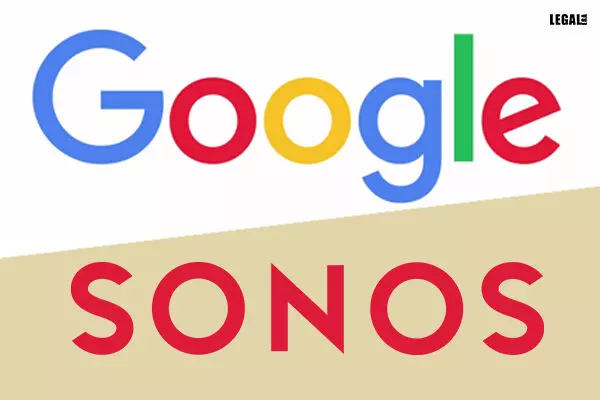- Home
- News
- Articles+
- Aerospace
- Artificial Intelligence
- Agriculture
- Alternate Dispute Resolution
- Arbitration & Mediation
- Banking and Finance
- Bankruptcy
- Book Review
- Bribery & Corruption
- Commercial Litigation
- Competition Law
- Conference Reports
- Consumer Products
- Contract
- Corporate Governance
- Corporate Law
- Covid-19
- Cryptocurrency
- Cybersecurity
- Data Protection
- Defence
- Digital Economy
- E-commerce
- Employment Law
- Energy and Natural Resources
- Entertainment and Sports Law
- Environmental Law
- Environmental, Social, and Governance
- Foreign Direct Investment
- Food and Beverage
- Gaming
- Health Care
- IBC Diaries
- In Focus
- Inclusion & Diversity
- Insurance Law
- Intellectual Property
- International Law
- IP & Tech Era
- Know the Law
- Labour Laws
- Law & Policy and Regulation
- Litigation
- Litigation Funding
- Manufacturing
- Mergers & Acquisitions
- NFTs
- Privacy
- Private Equity
- Project Finance
- Real Estate
- Risk and Compliance
- Student Corner
- Take On Board
- Tax
- Technology Media and Telecom
- Tributes
- Viewpoint
- Zoom In
- Law Firms
- In-House
- Rankings
- E-Magazine
- Legal Era TV
- Events
- Middle East
- Africa
- News
- Articles
- Aerospace
- Artificial Intelligence
- Agriculture
- Alternate Dispute Resolution
- Arbitration & Mediation
- Banking and Finance
- Bankruptcy
- Book Review
- Bribery & Corruption
- Commercial Litigation
- Competition Law
- Conference Reports
- Consumer Products
- Contract
- Corporate Governance
- Corporate Law
- Covid-19
- Cryptocurrency
- Cybersecurity
- Data Protection
- Defence
- Digital Economy
- E-commerce
- Employment Law
- Energy and Natural Resources
- Entertainment and Sports Law
- Environmental Law
- Environmental, Social, and Governance
- Foreign Direct Investment
- Food and Beverage
- Gaming
- Health Care
- IBC Diaries
- In Focus
- Inclusion & Diversity
- Insurance Law
- Intellectual Property
- International Law
- IP & Tech Era
- Know the Law
- Labour Laws
- Law & Policy and Regulation
- Litigation
- Litigation Funding
- Manufacturing
- Mergers & Acquisitions
- NFTs
- Privacy
- Private Equity
- Project Finance
- Real Estate
- Risk and Compliance
- Student Corner
- Take On Board
- Tax
- Technology Media and Telecom
- Tributes
- Viewpoint
- Zoom In
- Law Firms
- In-House
- Rankings
- E-Magazine
- Legal Era TV
- Events
- Middle East
- Africa
Google sues Sonos again over patent infringement

Google sues Sonos again over patent infringement
It intends to complain to the US International Trade Commission
Google has once again sued Sonos over patent infringement in what seems to be an unending legal battle between the two tech companies.
The two new lawsuits filed in the US District Court for the Northern District of California, centre around various patents involving keyword detection, charging using 'technologies invented by Google' and determining what speaker from a group should respond to the keyword.
Google accused Sonos products, including Sonos One, Arc, Beam, Move, and Roam of violating seven patents.
José Castañeda, the spokesperson for Google said, "Rather than compete based on innovation and product quality, Sonos has decided to compete in the courtroom. It started an aggressive and misleading campaign against our products at the expense of our shared customers. We prefer innovation to litigation, but their actions leave us no choice but to defend our technology and challenge Sonos's clear, continued infringement of our patents."
The search giant also plans to take these complaints to the US International Trade Commission. Castañeda said that the company intended to ask the Commission to impose a ban on the import of products found infringing the patents.
Google's lawsuit document targeted Sonos' recently introduced Voice Control feature that was being used without the former's permission for which it claimed it had patented.
The document stated, "Sonos has recently introduced its Voice Control feature to control its products in a power-efficient manner using 'hot words' and to manage battery charging of its products, using technologies invented by Google."
However, in response, Sonos defended that it was Google's arm-twisting tactic against the Santa Barbara-based smart speaker company for criticizing the search giant's monopolistic methods.
In a statement, Eddie Lazarus, the chief legal officer of Sonos, said, "Google previously sued us all over the world and Sonos has prevailed in every decided case. By contrast, the courts have repeatedly validated Sonos' claims that Google is infringing its core patented smart speaker technology. Google's new lawsuits are an intimidation tactic designed to retaliate against Sonos for speaking out against Google's monopolistic practices, avoid paying Sonos a fair royalty for the roughly 200 patents it is currently infringing, and grind down a smaller competitor whose innovations it has misappropriated. It will not succeed."
The two entities have been at loggerheads about wireless speaker tech patents. Sonos won earlier this year when the US Trade Commission said Google had infringed on patents related to casting and group speaker controls. The Mountain View-based company had to then remove the function of a single-group volume control for a set of speakers from its offerings.
However, recently, a California judge sided with Google by cancelling a Sonos patent related to transferring the playback queue of tracks from one speaker to another.



